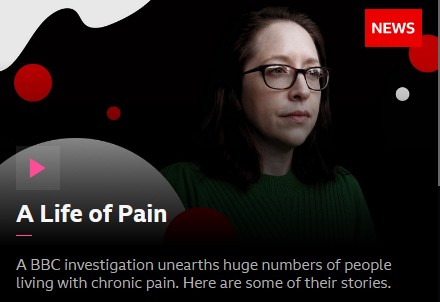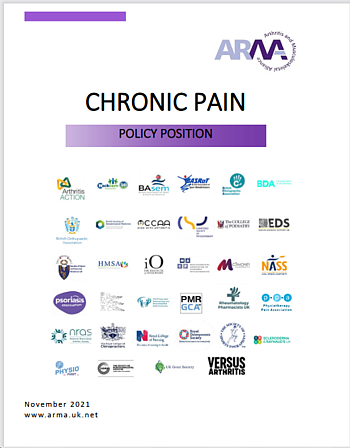 Media coverage of MSK conditions and pain is rare. Good coverage even more uncommon. So it was great to see the BBC focus on chronic pain on 11 May. A week earlier, coverage of the NICE draft guidelines on managing arthritis generated headlines such as “Exercise instead of taking painkillers, arthritis sufferers told.” Unsurprisingly this resulted in outcry from those who rely on pain medication to manage their arthritis, especially those who really need surgery but are on unacceptably long waiting lists after the pandemic.
Media coverage of MSK conditions and pain is rare. Good coverage even more uncommon. So it was great to see the BBC focus on chronic pain on 11 May. A week earlier, coverage of the NICE draft guidelines on managing arthritis generated headlines such as “Exercise instead of taking painkillers, arthritis sufferers told.” Unsurprisingly this resulted in outcry from those who rely on pain medication to manage their arthritis, especially those who really need surgery but are on unacceptably long waiting lists after the pandemic.
The headlines were inaccurate. The draft guideline does not say never use pain meds. In fact, it gives information about what medication works best if needed. What it does say is the core treatments should be therapeutic exercise and weight loss (if appropriate), along with information and support.
 The BBC coverage of chronic pain was better. The 30 minute documentary is worth a watch if you’ve not already seen it. It made me wonder if better media coverage of MSK could improve services. Health coverage tends to consist of cancer, Alzheimer’s, increasingly mental health, and more cancer. If there is any mention of MSK it will be accompanied by images of older people.
The BBC coverage of chronic pain was better. The 30 minute documentary is worth a watch if you’ve not already seen it. It made me wonder if better media coverage of MSK could improve services. Health coverage tends to consist of cancer, Alzheimer’s, increasingly mental health, and more cancer. If there is any mention of MSK it will be accompanied by images of older people.
ARMA produced a number of resources on pain a few months ago.  We continue to push our key messages about the need for improved access to community-based pain services, with a focus on self-management support. We discussed them with the journalist behind the BBC programme a while ago and I hope this contributed to their understanding.
We continue to push our key messages about the need for improved access to community-based pain services, with a focus on self-management support. We discussed them with the journalist behind the BBC programme a while ago and I hope this contributed to their understanding.
Last week I met an MP who is concerned. She represents a constituency with higher-than-average rates of arthritis, very high rates of hip fracture and lower than average rates of physical activity. She wants to know what the government, and what her local NHS are doing to ensure people with pain have rapid access to community support in managing that pain. Because it is in areas like this, one of the more deprived areas of the country, where we most need effective services, self-management support and good prevention.
Because the “don’t use pain medication” approach only works if the alternatives are in place – the therapeutic exercise programmes and the local support that can help people manage their conditions. This needs to be a priority for improving MSK services or many people will continue to see the NICE guidelines as unrealistic.
In a matter of weeks, the new statutory Integrated Care Systems (ICS) will be responsible for delivery of NHS services across England. One thing they must do, as a matter of priority, is to ensure that good quality, community-based services and support are available to everyone living with pain. I, along with ARMA members, and anyone else we can persuade to support us, will be holding them to account in delivering this.

